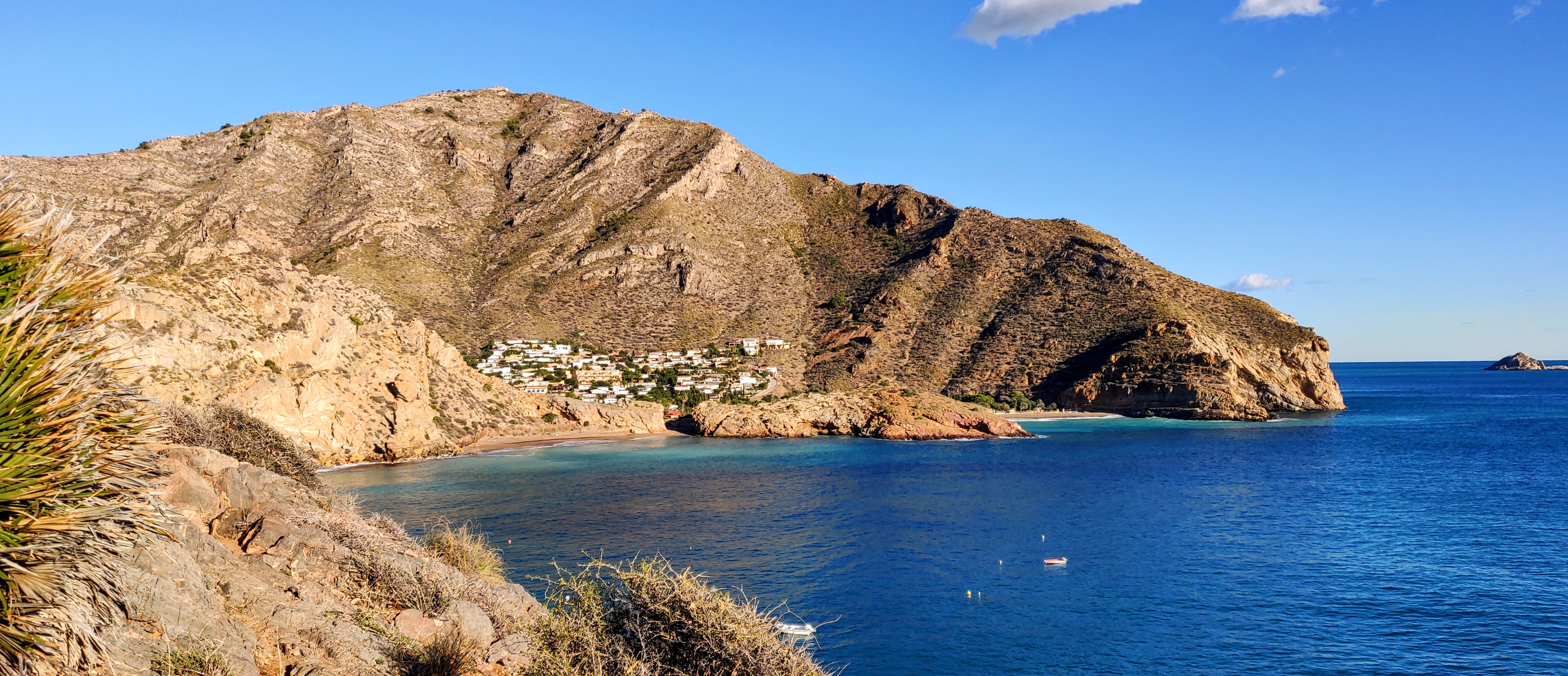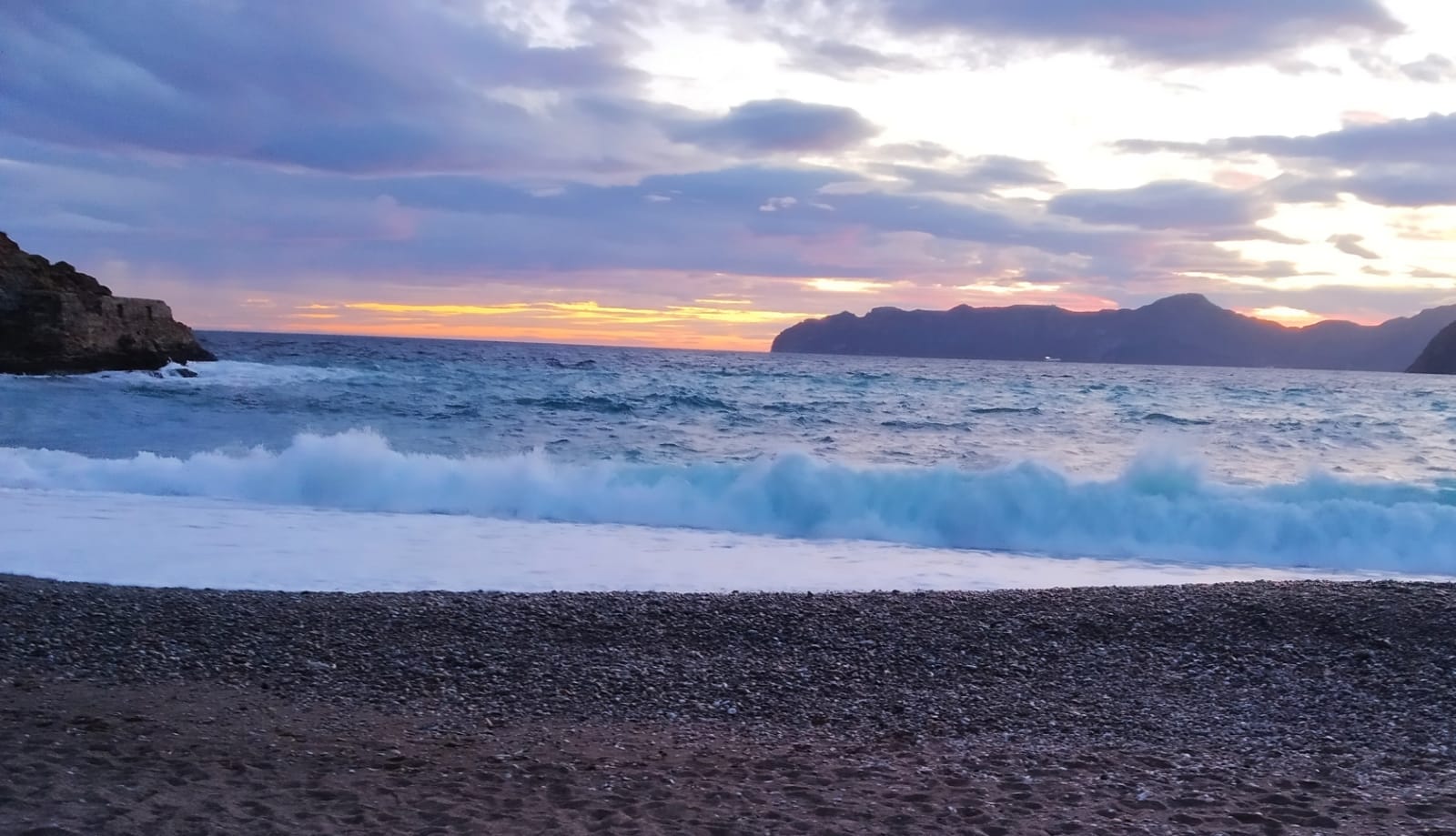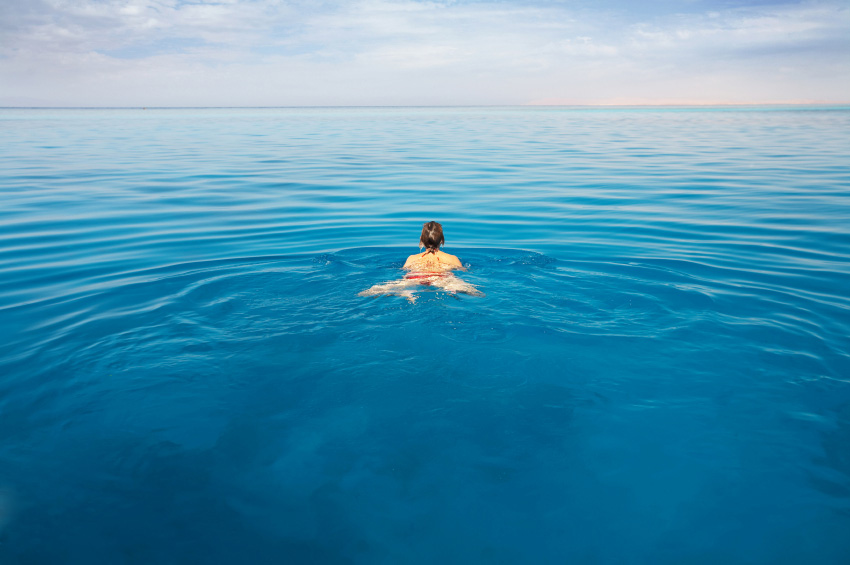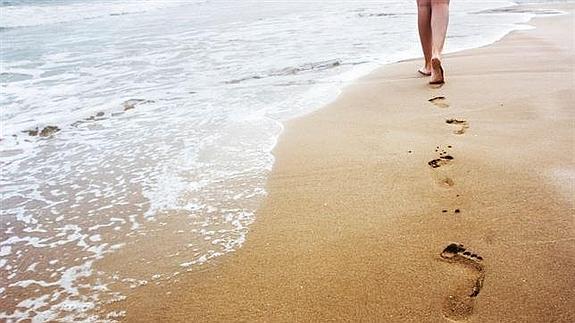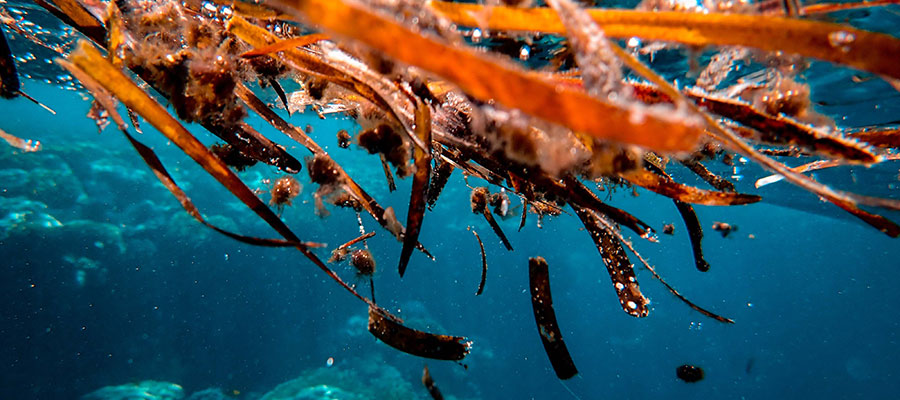Lo que no hace mucho se conocía como » tomar baños de sol » es una costumbre potencialmente beneficiosa tanto para el cuerpo como para la mente. Pocos sitios reúnen tantas cualidades como una playa: agua, sol, aire, sales, arena, iodo, algas…
Se trata, en efecto, de una especie de spa natural al que habría que añadir además un horizonte despejado, espacio para practicar ejercicio al aire libre, un ambiente relajado y, según las circunstancias, una tranquilidad que induce a la desconexión y las actitudes contemplativas.
El mar es fuente de salud, de belleza, de reposo, de vitalidad. Sus efectos, que empiezan a notarse a partir de más o menos el tercer día de playa, pueden conservarse entre seis y 12 meses. Justo lo que se necesita hasta las siguientes vacaciones.
Como decíamos, ir a la playa no es solo broncearse y desconectar, también es una forma simple y cómoda de obtener notables beneficios para la salud y de recargar las pilas de cara al invierno. Según señalan los expertos, hasta un 80% de los recursos marinos están sin explotar, lo que convierte al mar en el futuro proveedor de nuestra farmacia. En fin, que es mucho lo que ofrece esta rutina de ocio estupenda y al alcance de todos.
Las virtudes del agua salada
– Por su composición, el agua de mar ofrece considerables ventajas en comparación con la dulce. Su sabor característico procede de una alta concentración de sales minerales en disolución como yodo, cloro, zinc, sodio, potasio, magnesio o calcio, así como oligoelementos muy positivos para nuestro cuerpo. En total, alrededor de 85 elementos esenciales necesarios para el metabolismo y que habitualmente no están presentes en nuestra dieta diaria, además de otras vitaminas y microorganismos.
– Además, cuida la piel, ya que al margen de su acción antialérgica en general, el magnesio, actúa como antioxidante y reduce su envejecimiento. A su vez, el iodo la convierte en desinfectante y antibiótica, lo que favorece la cicatrización y ayuda a solucionar problemas cutáneos como la psoriasis.
– Actúa como antialérgico del aparato respiratorio, cura catarros, reduce la tos crónica, mejora las dolencias pulmonares y además oxigena las células.
– Gracias a la presencia de calcio y magnesio, es muy útil para personas con problemas de tiroides y de osteoporosis, ya que fija el calcio.
– Los baños en el agua de mar mejoran el tono muscular y reducen el dolor a aquellos que sufren artrosis u otra enfermedad reumática. Nadar o el simple hecho de flotar favorecen la relajación de los músculos. El yodo ayuda a recuperar ciertas lesiones y en el caso del aparato locomotor, el simple hecho de caminar por el agua, con menos peso y una mayor resistencia, se convierte en una excelente terapia.
– El magnesio no solo refuerza el sistema inmunológico sino que además ayuda a calmar la ansiedad y el estrés, por lo que es muy recomendable para pacientes con depresión, nerviosismo o tensión emocional.
– Nadar y, sobre todo, sumergirse beneficia el retorno venoso y por tanto un buen drenaje linfático. La temperatura del agua también actúa sobre el sistema vascular y alivia problemas de circulación y combate la celulitis y previene la aparición de varices.
– Para sacarle más partido al contacto con el agua de mar, vale la pena, si es posible, alternar corrientes de agua fría y templada para obtener así un buen masaje tonificante. Y gratuito. También es recomendable no secarse de inmediato, sino más bien dejar que la piel absorba durante unos minutos (alrededor de 20 sería lo ideal) las propiedades del agua de mar.
La última hora de la tarde es la más recomendable para darse un buen baño, ya que el mar ha ido absorbiendo el calor diurno y esto potencia la permeabilidad de la piel.
Las propiedades terapéuticas de un baño de sol
– Aunque el sol es fuente de vida, cada día es mayor su intensidad y las radiaciones ultravioleta, que en principio son positivas, deben tomarse con mucha precaución. Así pues, hay que tomar el sol, pero siempre de manera prudente y limitando la duración de las exposiciones, ya que sus potenciales efectos nocivos sobre la piel en caso de exceso superan con creces sus beneficios. Por tanto, hay que acostumbrar la piel de manera paulatina. Ve poco a poco con sesiones cortas que vayan aumentando progresivamente. Y lo mismo en cuanto a la superficie corporal.
– Ve despacio, es mucho mejor estar pequeños ratitos al sol que una exposición prolongada.
– Bebe mucha agua y usa siempre protección. Tanto antes con cremas solares como después con una buena loción hidratante.
– Los baños de sol combaten el insomnio.
– Son buenos para cicatrizar heridas y actúan favorablemente sobre algunos problemas de piel.
– El sol se encarga de sintetizar la vitamina D a través de la piel y fija el calcio en los huesos y es muy recomendable para la osteoporosis.
– Son recomendables como terapia auxiliar o de refuerzo en caso de trastornos psicológicos como la ansiedad o la depresión.
– Tumbarse al sol es, de por sí, una práctica muy relajante, ya que despeja la mente.
– Si se puede elegir, es preferible el sol de primavera y los primeros días del verano y ya entrado el otoño. Nunca se debe tomar al mediodía y la mejor hora es por la mañana temprano. No olvides protegerte y cuidar tu piel.
Las virtudes de la brisa marina
Todo el mundo siente su impacto nada más acercarse a la orilla y por una desconocida razón todos cerramos los ojos y respiramos profundamente. En ese momento nos inunda ese inconfundible olor a mar que tanto bien hace, ya sea por su efecto refrescante o por la sensación de calidez. Un aire que estimula el cuerpo y al mismo tiempo actúa como un sedante natural para nuestro espíritu. Un aire cargado de beneficios.
– Entre la presión atmosférica, la humedad y la pureza del aire, el cuerpo se relaja inmediatamente y por tanto calma el sistema nervioso.
– Baja la tensión arterial, especialmente si la temperatura se estabiliza entre 20 y 30 grados. El ritmo cardíaco es más lento y mejora la circulación periférica, por lo que es útil para personas con problemas cardiovasculares.
– Desaparecen muchos dolores de cabeza ante la luminosidad y el bajo número de iones positivos que suele haber en sitios cerrados y con numerosos aparatos eléctricos y fibras sintéticas. Adiós tensión.
– La vista descansa al mirar hacia el horizonte y al mismo tiempo establece planos diferentes y se ejercita pasando de un punto cercano a uno lejano, de un libro a un barco que se mueve por lontananza.
– Limpia las vías respiratorias, ya que es aire puro y cargado de humedad. Es muy recomendable para personas con asma y alergias.
– Aumenta la capacidad pulmonar, mejora la ventilación y nuestra sangre eleva sus niveles de hematíes y hemoglobina.
– Su alto contenido en iodo convierte la brisa marina en un spray natural muy eficaz para la regulación del tiroides.
– Dado que la brisa marina produce ozono de manera natural, tiene propiedades antibióticas y bactericidas. Estimula las defensas del organismo.
– Oxigena la piel.
El contacto de la arena en los pies
Una alfombra natural cálida y suave llena de sales minerales, las mismas que contiene el agua de mar. Su tacto, al pasear, tumbarse o jugar con ella, nos devuelve a la tierra de la que procedemos. El contacto con ella está lleno de virtudes.
– Caminar por la arena relaja los músculos, fortalece los tobillos –con lo que se previenen esguinces y torceduras- y libera los pies hacia una pisada más natural, libre de la forma artificial del calzado.
– Previene y alivia problemas musculares, articulares y óseos.
– Ejercita de forma natural y suave las rodillas y las caderas.
– Regenera la piel de la planta del pie, habituada a estar encerrada entre calcetines y zapatos.
– Pasear por la orilla atenúa el insomnio y sus síntomas.
– Recorrer una playa de punta a punta tonifica el organismo, tanto por el contacto con el mar, como por respirar la brisa marina, como por el ejercicio al aire libre y en un entorno poco habitual.
– Se tonifican piernas y muslos, se endurecen los glúteos y se activa la circulación. Los vasos sanguíneos se contraen y desaparecen casi de forma instantánea los dolores musculares y el cansancio.
– Un paseo por la orilla húmeda de unos 30 minutos, a paso ligero y con el mar bañando ocasionalmente tobillos y pantorrillas es un ejercicio perfecto. La arena también permite practicar otros deportes, petanca, pala, voleibol, fútbol…
– Los baños de arena son muy beneficiosos. De hecho se ofrecen en muchos establecimientos tipo spa, ya que además de relajantes, ceden muchos de sus elementos al organismo. Un buen baño puede durar entre 10 y 20 minutos.
– Frota suavemente la arena contra la piel y de esta forma obtendrás un `peeling´ natural.
Las benditas algas
Muchos de los nutrientes que produce el agua de mar son absorbidos por las algas, que los concentran hasta alcanzar 500 veces esos elementos esenciales. Al entrar en contacto con la piel, transfieren muchas de sus propiedades al ser humano.
Son muy beneficiosas, ya que dependiendo de su variedad, tonifican, oxigenan las células, reafirman, drenan, nutren la piel, etcétera. Está comprobado que tienen propiedades anticancerígenas, antioxidantes, relajantes, regeneradoras, efectos antibióticos… Aprovecha tus baños y tus paseos por la arena para estar en contacto con ellas.
Ya lo dijo Hipócrates, el mar cura las enfermedades del hombre. Así que, si tienes pensado frecuentar la playa este verano, vale la pena que sepas que además de una estupenda experiencia al aire libre tomar el sol en una cala del litoral es también una práctica terapéutica con efectos muy positivos para la salud.
Health & Wellness
What was not long ago known as «sunbathing» is a potentially beneficial habit for both the body and the mind. Few places have as many qualities as a beach: water, sun, air, salts, sand, iodine, algae …
It is, in effect, a kind of natural spa to which should also be added a clear horizon, space to practice outdoor exercise, a relaxed atmosphere and, depending on the circumstances, a tranquility that induces disconnection and contemplative attitudes .
The sea is a source of health, beauty, rest, vitality. Its effects, which begin to be noticeable after about the third day at the beach, can be kept for between six and 12 months. Just what is needed until the next vacation.
s we said, going to the beach is not only tanning and disconnecting, it is also a simple and comfortable way to obtain notable health benefits and to recharge your batteries for the winter. According to experts, up to 80% of marine resources are unexploited, which makes the sea the future supplier of our pharmacy. In short, there is a lot that this wonderful leisure routine offers and within everyone’s reach.
The virtues of salt water
– Due to its composition, sea water offers considerable advantages compared to fresh water. Its characteristic flavor comes from a high concentration of mineral salts in solution such as iodine, chlorine, zinc, sodium, potassium, magnesium or calcium, as well as very positive trace elements for our body. In total, around 85 essential elements necessary for metabolism and that are not usually present in our daily diet, in addition to other vitamins and microorganisms.
– In addition, it takes care of the skin, since apart from its antiallergic action in general, magnesium acts as an antioxidant and reduces aging. In turn, the iodine makes it a disinfectant and antibiotic, which promotes healing and helps to solve skin problems such as psoriasis.
– It acts as an antiallergic of the respiratory system, cures colds, reduces chronic cough, improves lung ailments and also oxygenates cells.
– Thanks to the presence of calcium and magnesium, it is very useful for people with thyroid problems and osteoporosis, as it fixes calcium.
– Baths in seawater improve muscle tone and reduce pain for those suffering from osteoarthritis or other rheumatic diseases. Swimming or the simple act of floating help relax the muscles. Iodine helps to recover certain injuries and in the case of the locomotor system, the simple fact of walking through water, with less weight and greater resistance, becomes an excellent therapy.
– Magnesium not only strengthens the immune system but also helps to calm anxiety and stress, so it is highly recommended for patients with depression, nervousness or emotional tension.
– Swimming and, above all, submerging benefits venous return and therefore good lymphatic drainage. The temperature of the water also acts on the vascular system and alleviates circulation problems, fights cellulite and prevents the appearance of varicose veins.
– To get more out of the contact with sea water, it is worth, if possible, alternate streams of cold and warm water to obtain a good toning massage. And free. It is also advisable not to dry out immediately, but rather to let the skin absorb the properties of seawater for a few minutes (around 20 would be ideal).
The last hour of the afternoon is the most recommended to take a good bath, since the sea has been absorbing the daytime heat and this enhances the permeability of the skin.
The therapeutic properties of a sun bath
– Although the sun is the source of life, its intensity is increasing every day and ultraviolet radiation, which is positive in principle, must be taken with great caution. Therefore, you must sunbathe, but always in a prudent way and limiting the duration of exposures, since its potential harmful effects on the skin in case of excess far outweigh its benefits. Therefore, you have to get used to the skin gradually. Go little by little with short sessions that gradually increase. And the same in terms of body surface.
– Go slowly, it is much better to be in the sun for little moments than a prolonged exposure.
– Drink lots of water and always wear protection. Both before with sun creams and afterwards with a good moisturizing lotion.
– Sunbaths fight insomnia.
– They are good for wound healing and act favorably on some skin problems.
– The sun is responsible for synthesizing vitamin D through the skin and fixes calcium in the bones and is highly recommended for osteoporosis.
– They are recommended as auxiliary or reinforcement therapy in case of psychological disorders such as anxiety or depression.
– Lying in the sun is, in itself, a very relaxing practice, as it clears the mind.
– If you can choose, it is preferable the spring sun and the first days of summer and into autumn. It should never be taken at noon and the best time is early in the morning. Don’t forget to protect yourself and take care of your skin.
The virtues of the sea breeze
Everyone feels its impact as soon as they approach the shore and for an unknown reason we all close our eyes and breathe deeply. At that time we are inundated with that unmistakable smell of the sea that does so much good, either for its refreshing effect or for the feeling of warmth. An air that stimulates the body and at the same time acts as a natural sedative for our spirit. An air loaded with benefits.
– Between atmospheric pressure, humidity and air purity, the body immediately relaxes and therefore calms the nervous system.
– Lower blood pressure, especially if the temperature stabilizes between 20 and 30 degrees. The heart rate is slower and improves peripheral circulation, making it useful for people with cardiovascular problems.
– Many headaches disappear due to the light and the low number of positive ions that are usually found in closed places and with many electrical appliances and synthetic fibers. Goodbye tension.
– The sight rests when looking towards the horizon and at the same time establishes different planes and exercises moving from a near point to a distant one, from a book to a ship that moves in the distance.
– Cleanses the respiratory tract, as it is pure air loaded with moisture. It is highly recommended for people with asthma and allergies.
– Increases lung capacity, improves ventilation and our blood raises its levels of red blood cells and hemoglobin.
– Its high iodine content makes the sea breeze a very effective natural spray for thyroid regulation.
– Since the sea breeze produces ozone naturally, it has antibiotic and bactericidal properties. Stimulates the body’s defenses.
– Oxygenates the skin.
The contact of the sand on the feet
A warm and soft natural mat full of mineral salts, the same as those found in sea water. Its touch, when walking, lying down or playing with it, returns us to the land from which we come.
– Walking on the sand relaxes the muscles, strengthens the ankles – thereby preventing sprains and strains – and frees the feet towards a more natural footprint, free from the artificial shape of footwear.
-Prevents and alleviates muscle, joint and bone problems.
– Exercises the knees and hips in a natural and gentle way.
– Regenerates the skin on the sole of the foot, used to being enclosed between socks and shoes.
– Walking along the shore alleviates insomnia and its symptoms.
– Walking a beach from end to end tones the organism, both by contact with the sea, by breathing the sea breeze, and by exercising outdoors and in an unusual environment.
– Legs and thighs are toned, the buttocks tighten and circulation is activated. The blood vessels constrict and muscle aches and fatigue disappear almost instantly.
– A walk along the wet shore of about 30 minutes, at a brisk pace and with the sea occasionally bathing the ankles and calves is a perfect exercise. The sand also allows you to practice other sports, petanque, shovel, volleyball, soccer …
– Sand baths are very beneficial. In fact, they are offered in many spa-type establishments, since in addition to being relaxing, they give up many of their elements to the body. A good bath can last between 10 and 20 minutes.
– Gently rub the sand against the skin and in this way you will obtain a natural ‘peeling’.
The blessed algae
Many of the nutrients produced by seawater are absorbed by algae, which concentrate them up to 500 times those essential elements. When in contact with the skin, they transfer many of their properties to the human being.
They are very beneficial, since depending on their variety, they tone, oxygenate cells, firm, drain, nourish the skin, and so on. It is proven that they have anti-cancer, antioxidant, relaxing, regenerating properties, antibiotic effects … Take advantage of your baths and your walks on the sand to be in contact with them.
Hippocrates already said, the sea cures the diseases of man. So, if you plan to go to the beach this summer, it is worth knowing that in addition to a great outdoor experience, sunbathing in a coastal cove is also a therapeutic practice with very positive effects on health.

